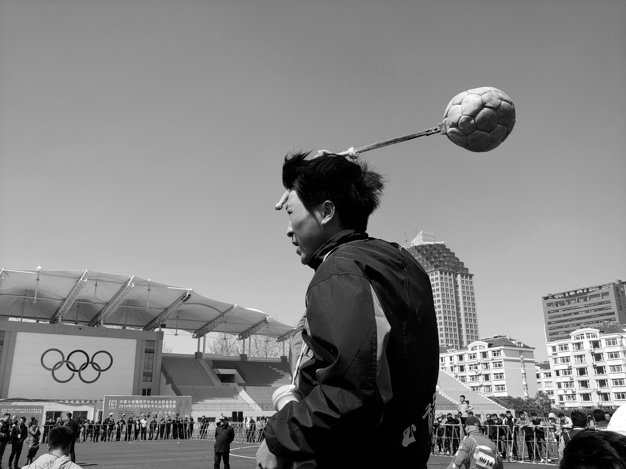04 Aug Athletes and Sportspeople – The world that does not stand still.
What to look out for when signing a contract
With the sporting world waking up from two years of unwanted rest, the Tokyo 2020 Summer Olympics and British & Irish Lions Tour underway and having just enjoyed the UEFA EURO 2020 Tournament, Wimbledon and the British Grand Prix, we have been spoiled for choice when it comes to recent sporting events. Yet the cost for Athletes and Clubs to survive, train and thrive is ever increasing. Public or Lottery money only goes so far, and qualification margins are ever so small. So how to make a difference? How to navigate the difficulties of protecting the rights while entering into contracts with their country, team or club that would allow for each entity to see long term relationships? A one-year deal may be good in certain sports, but for an Olympian anything shorter than four years is not really leverage. And what makes this sporting property better than another or what makes it worth the brand association? The alchemy between sport entity and the sponsor is certainly a delicately balanced one that must be reflected carefully in the agreements, as there is nothing worst for either party than having to terminate an agreement for breach when it was shouted to the world how great that association was.


1. Protect yourself – this is the most important factor to consider! Represent who you are and who you are comfortable to be associated with. A short-term agreement done with the wrong party can create a long-lasting devaluing effect on your future sponsorship. If you decided to be sponsored by something that is against your values for example, and you make it big, you will be forever associated with it. Not ideal.
2. Protect your rights – ensure that your rights are protected and that the contract allows you the flexibility to make necessary changes depending on your circumstances. For as exciting it may be to sign that agreement, it is imperative that you do not limit your ability to contract with other parties, or those in different jurisdictions which would allow you to bring in revenue in other areas. For example, an opportunity to train or compete in a different country may be what is best for your career and should not preclude you from entering into a sponsorship contract in your ‘home’ country. Another example would be a clause that only allows you to have one sponsor, while this may make sense with regards to products in the same sector, it does not need to be an exclusive deal.
3. Consider time – this aspect is three-fold. Firstly, allow yourself enough time to reflect, read, consider and potentially seek assistance regarding the contract and its terms so that you are not pressurised into signing an agreement with which you are not completely happy. Beware of signing contracts for extended periods. It is advisable that contracts are instead renewed, if the parties want to continue the relationship, as this will allow you time to consider other options, amend the clauses in the contract to better suit you or instead part ways if there are aspects with which you are unhappy.

4. Understand – make sure you read the entire contract, as well as any attachments which may be part of it or are intended to be part of it. Promotional activities may exceed the immediate gain. Clauses contained in contracts are often confusing and use terms and language with which you may not be familiar. It is probably in your best interest to give the contract to someone who you trust, who knows what each term means and what ramifications it may have for you. It must be remembered that although others may assist you, at the end of the day it is you who signs the contract and you who is bound by its terms – even if you do not properly understand the contents thereof. You should also always keep an easily accessible copy of the signed document to refer to if necessary.
5. Know who is involved – research the parties who you will be contracting with and ensure that you are certain that whoever is signing the contract has the authority to do so. It may be worthwhile talking to other people who have dealt with the party before and asking them for their honest opinion regarding how business was conducted. A simple search can provide you with information regarding senior management within the party as well as financial stability and even past notable news mentions. In specific contexts, it may be important to align your values and beliefs with those of the other party. After all, you wouldn’t want to be the face of a product who represents beliefs that go against your own!
6. Know your responsibilities – it is essential that you understand each and every part of what is expected from you as well as how your failure to do so may affect the contract. You may have certain responsibilities which have to take place by a specific date or within a specific time frame of signing the contract. You must confirm what would happen should you be unable to meet such a deadline or if something prevents you from doing so – whether it is under your control or not! It is worthwhile considering the risks of not meeting certain requirements and whether there is a reputational or monetary loss which could occur as a result. Be sure that your responsibilities are clear and that there is no ambiguity which may require you to do something of which you were not aware.
7. Know their responsibilities – similarly to the above point, you must understand what the other party is responsible for or owes you and what happens should it not happen. For example, there may be time sensitive procedures that you need to follow should you not receive payment. There may be certain behaviours which result in termination of the contract which could be more favourable to you at a particular time. Understanding your options in relation to such aspects will allow you to further protect your interests.
8. Terminate – at some point it may be in your best interest to exit the contract, however you would want to limit your liability, future risks and reputation. To limit these aspects, it is important to understand which behaviour of yours, as well as which behaviour of the other party, will cause the contract to terminate. There may also be situations where either party is unable to perform under the contract, potentially, for an extended period. We have all been made even more aware of this because of the Covid-19 pandemic and you should ensure provision is made for similar situations in the future. By understanding this aspect you will, at all times, be aware of how to counteract any nonperformance to direct the situation towards your desired outcome, while limiting your loss.
We provide great value to our clients, giving them peace of mind regarding any contract entered into and with our specific and extensive knowledge of Sports Law – ASV Law is in a prime position to offer this to you! Please contact ASV Law info@asvlaw.com now for more information and we will be happy to assist you.

